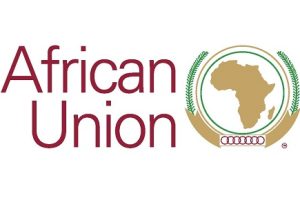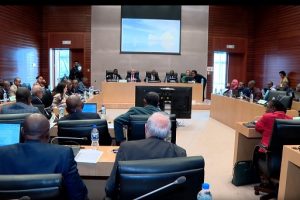In the present climate, the distribution and administration of COVID-19 vaccination are improving in the developed nations that have strong economy and production capacity. Owing to their economic muscle, developed nations have been providing their people with jabs with the intention of curtailing the pandemic. Needless to say, they have been giving priority to their citizens while the continent of Africa, South America and other Asian countries continue struggling with COVID-19 vaccine shortage due to unfair distribution and shortage in supply. Unless a wide spectrum of techniques that can bridge gaps between the poor and the rich countries established, the world cannot turn its vision into reality.
As they no one is save until everyone is safe, the distribution of vaccine must be fair to protect every one. However, the reality is different this time. Powerful economies like US are in the frontrunner in providing vaccine doses to their citizens and efforts are underway to narrow vaccine inequality. According to CNN, the Biden administration, in a major decision Wednesday, said it would support easing patent rules on Covid-19 vaccines after intense internal debate and strong pushback from American drugmakers, potentially expanding the global supply and narrowing the vaccination gap between rich and poor nations.
The move is preliminary and will not guarantee the global patent rules are lifted right away. But the Biden administration’s signal of support amounts to a major step that aid groups and Democrats had been pressing for. “The Administration believes strongly in intellectual property protections, but in service of ending this pandemic, supports the waiver of those protections for COVID-19 vaccines,” US Trade Representative Katherine Tai wrote in a statement.
President Joe Biden and Tai had been weighing the issue after calls from global advocacy groups and progressives to support waivers on World Trade Organization rules that had been proposed by India and South Africa. Biden as a candidate promised to support such waivers, but had been under pressure from pharmaceutical companies to keep them in place.
In the lead-up to Wednesday’s decision, administration officials led by Tai met with more than two dozen stakeholders in the vaccine patent debate, according to an official. That included trade partners, health experts and advocates, labor groups and the major vaccine manufacturers. Once the information they gleaned was compiled, the department presented options to Biden, who ultimately decided to support the waiver in line with his campaign pledge.
Officials were clear, however, that patent rules will not immediately be eased based on Wednesday’s decision. Members of the WTO must unanimously decide whether to loosen the restrictions. And while the US had been a hold out, other countries — including the European Union and Switzerland — have also resisted the step. “The Administration’s aim is to get as many safe and effective vaccines to as many people as fast as possible,” Tai said in her statement. “As our vaccine supply for the American people is secured, the Administration will continue to ramp up its efforts — working with the private sector and all possible partners — to expand vaccine manufacturing and distribution. It will also work to increase the raw materials needed to produce those vaccines.”
US Surgeon General Vivek Murthy on Wednesday said the Biden administration’s support of a Covid-19 vaccine waiver proposal “put people over patents.” “To me it was a value statement,” Murthy told CNN’s Erin Burnett on “OutFront.” Murthy emphasized the role of the US in helping lead the world through the global Covid-19 crisis, saying that “if we stick together, if we work together, if we help work and collaborate with countries around the world, I do believe we will turn this pandemic around.”
There had been divisions within the administration over whether to support easing some patent restrictions on vaccines, according to people familiar with the matter. Biden has faced similar scrutiny over how and when he will distribute surplus vaccines doses abroad, with some advocates accusing him of not doing enough to help struggling countries like India vaccinate their populations.
According to BBC, an international effort, known as the Covax scheme, was set up last year to try to ensure fair access to vaccines among rich and poor nations but the global situation remains vastly uneven. More than 49 million vaccine doses have been delivered through Covax so far. But a further $35bn-$45bn (£25bn-£32bn) is needed over the course of next year to ensure most adults are immunised, according to the Director-General of the World Health Organization (WHO) Tedros Adhanom Ghebreyesus.
Covax is co-led by the WHO, the Global Vaccine Alliance (Gavi) and the Coalition for Epidemic Preparedness Innovations (Cepi), with the UN children’s fund, Unicef, as key implementation partner. The coronavirus pandemic has destroyed livelihoods and claimed the lives of more than three million people worldwide.
Health experts, including the head of the WHO, have been clear that the fight against coronavirus is a global one and have urged wealthier nations to do more to help others to bring the situation under control. Covax was created to pool the global vaccine effort and ensure fairer distribution in a mechanism by which richer countries offset the costs of getting vaccines to poorer ones.
Ghana was the first country to receive Covax vaccines in February. Tens of millions of doses have been shipped across six continents since and experts hope to distribute two billion doses by the end of the year. Dr Tedros has criticised wealthier nations for undermining Covax, accusing them of “gobbling up” the global vaccine supply by ordering multiple times more than they need for their own populations.
He said in April that only 0.3% of the vaccines administered around the world so far had gone to people in low-income countries. Covax now also needs about 20 million extra doses by the end of June to make up a shortfall on deliveries caused by the spiralling health crisis in India. Sweden is the latest country to donate to that pot, pledging one million AstraZeneca doses at the start of May.
Five vaccines have already been given emergency use authorisation by the WHO, which is a pre-requisite for Covax use. The latest one is by US drug-maker Moderna, which has agreed a deal with Covax for 500 million doses at its “lowest-tiered price”. However, the bulk of these will not be available until 2022. Aljazeera on March 10, 2021 reported that richer countries hoarding excess doses, preventing poorer ones from getting vaccinated this year.
South Africa, India, and more than 100 other nations have called on the World Trade Organization (WTO) to temporarily waive patents for COVID-19 vaccines, saying they are being prevented from immunising their people. The two countries first made the appeal in October last year, calling on the WTO to waive provisions in a trade agreement governing intellectual property rights so medical products can be more easily accessed by developing nations. More than 100 nations have since joined the calls.
Endorsing requests for a waiver, WHO Director-General Tedros Adhanom Ghebreyesus said earlier this month: “If a temporary waiver to patents cannot be issued now, during these unprecedented times, when will be the right time?” At the core of the discussion stands a proposal submitted in October by South Africa and India to suspend the WTO’s agreement on Trade-Related Aspects of Intellectual Property Rights (TRIPS) for the duration of the coronavirus pandemic.
The goal is to facilitate the transfer of technology and scientific knowledge to developing countries to ramp up the global production of vaccines and other necessary equipment. Last month, more than 400 organizations in the United States joined forces calling on President Joe Biden to endorse the waiver, while 115 members of the European Commission issued a declaration urging the European Union to drop its opposition to the temporary suspension.
The African Union also backed the relaxing of rules on intellectual property (IP), calling it a “win-win for everybody”. According to a campaign group called ONE, richer countries are hoarding excess doses of COVID-19 vaccines and buying one billion more than their citizens need, which prevents poorer nations from getting vaccinated this year.
“This huge vaccine excess is the embodiment of vaccine nationalism, with countries prioritising their own vaccination needs at the expense of other countries and the global recovery,” said ONE in a report last month. ONE’s policy team added “a massive course correction” in distribution was needed if the world wanted to protect and save lives as the death toll from the pandemic approaches 2.5 million.
UN Secretary-General António Guterres said last month just 10 countries had so far administered 75 percent of all vaccinations, describing it as “wildly uneven and unfair”. At least 130 countries have not yet received a single dose of a COVID-19 vaccine, said Guterres. “At this critical moment, vaccine equity is the biggest moral test before the global community,” he said.
BY ADDISALEM MULAT
The Ethiopian Herald May 7/2021





